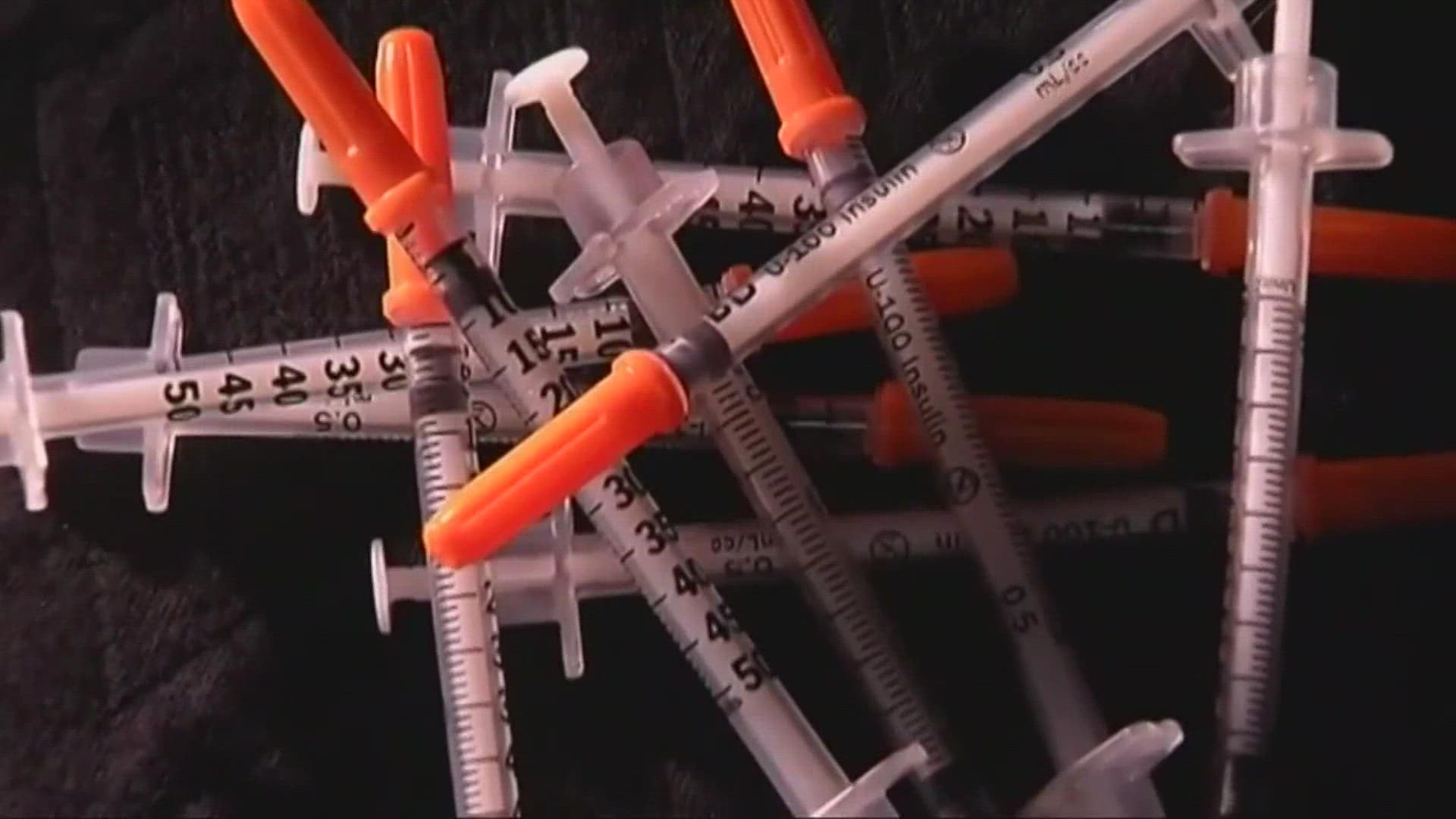MAINE, USA — As Maine’s opioid epidemic rages on, lawmakers in Augusta have introduced a bill that aims to support people battling addiction and prevent severe illness and death.
LD 1909 is sponsored by Rep. Genevieve McDonald, D-Stonington, and would reduce restrictions on Syringe Services Programs in Maine.
“2021 was the deadliest year in Maine’s opioid epidemic. This crisis requires a sharper focus on prevention, harm reduction, and treatment,” McDonald said.
The bill would eliminate a rule placed on these programs that requires that all syringes distributed be exchanged for used syringes. This is commonly referred to as one-for-one needle exchange.
“It will help keep more people alive until they can get the help that they need and that they deserve,” McDonald said.
If passed, these programs could distribute clean needles to all those who participate in the needle exchange program, regardless of if they present a used needle.
On Monday, McDonald and other recovery advocates held an information session over Zoom on the proposed bill.
Advocates said a robust needle exchange program with fewer restrictions allows for greater communication with those battling substance use disorder using their services and can create avenues for communication when a person is ready to begin their recovery process.
“No other service related to substance use meets an individual where they’re truly at and non-coercively works with them to sustain or improve their health,” Chasity Tuell, the Washington County program director for Maine Access Points, said. MAP is a harm reduction organization that provides syringe access services, overdose prevention education, and naloxone distribution throughout rural Maine.
Dr. Kinna Thakara is an infectious disease and addiction medicine specialist who works with the Northern New England Society of Addiction Medicine and the Maine Medical Association. She said the reuse of needles could lead to serious illnesses like HIV, hepatitis, soft tissue infections, and endocarditis.
“If people use a new needle or new equipment every time they inject, they have less chance of getting infected. And at this point, I’ve seen countless people in the hospital who have said they’ve had to reuse their equipment because they haven’t been able to access a clean needle or syringe every time,” Thakara said.
The bill has been formally introduced in the 130th Legislature and sent to the Committee on Health and Human Services. A public hearing on the bill is planned for Feb. 1 at 1 p.m.
Monday’s information session was also hosted by Maine Access Points, The Maine Recovery Advocacy Project, ACLU of Maine, Maine Church of Safe Injection, and Maine Drug Policy Lab at Colby College.

